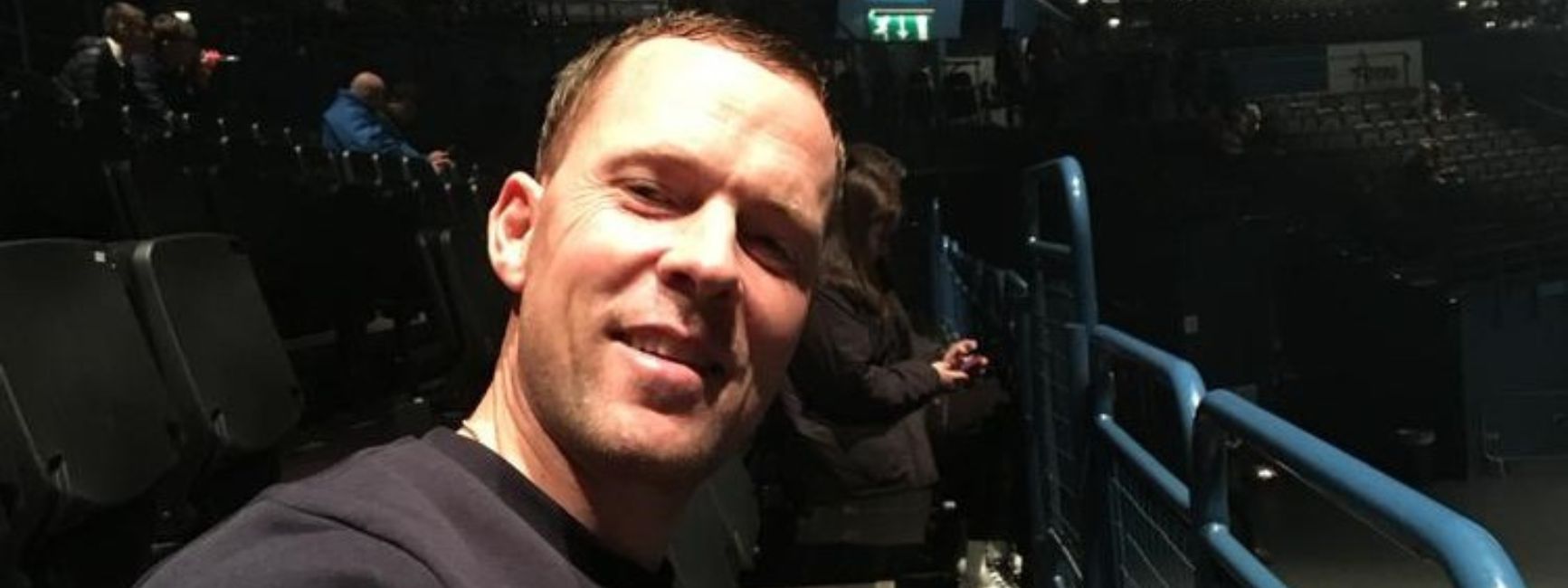Birmingham dad-of-three, Paul was diagnosed with a glioblastoma (GBM) in 2017 after suffering a seizure out of the blue. Doctors thought he could have epilepsy. A month of seizures ensued and a CT scan found a mass on his brain. He underwent two operations and multiple rounds of gruelling radiotherapy and chemotherapy treatment. Paul was due to start a trial treatment in London, however his tumour became too aggressive and shortly after marrying Kelly, he died in April 2021, aged 40.
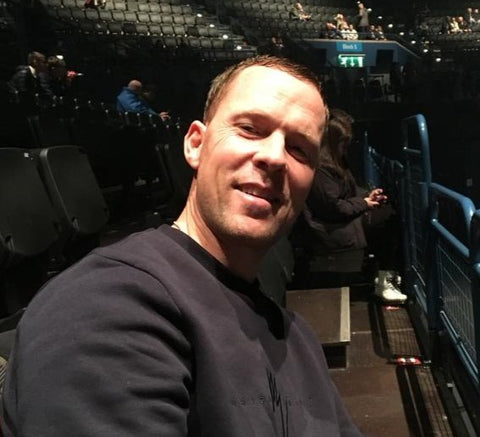
Here is Paul’s story, as told by his wife, Kelly…
Before seeing a loved one experience a brain tumour, I never understood what exactly it meant. I wish I still didn’t.
Paul was a loving family man and often kept himself to himself. We had been together for 17 years after meeting through a family member and built a life together with three children. He was a huge sports fan, mostly football and an even bigger blues fan (Birmingham City).

Over Christmas 2016 Paul had his first ever seizure. I woke up to the sound of a deafening scream. I thought he was dreaming but soon his legs and arms were flailing about. I called an ambulance and they told me to get Paul into the recovery position but I blacked out myself. I came round to the ambulance crew who had been let in by our children who were 13, eight and six at the time.
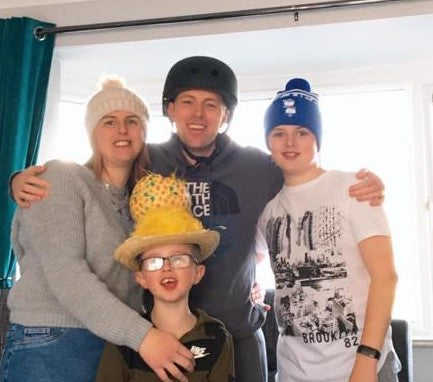
Together we went to the hospital where he had a CT scan which came back clear.
“He was sent home and told his tonic-clonic seizure could be epilepsy.”
Over the next four weeks he had more seizures. No two seemed to be the same. Sometimes he would appear vacant and stare at you, other times he seemed confused.
After he had another seizure during the night I called an ambulance and he was taken to hospital where he was given another scan. Two days later the consultant contacted us and said they’d found a brain tumour which looked as if it was low-grade.
We didn’t know what that meant but hearing the words low-grade offered some kind of reassurance. Two months later, he had an operation which removed the mass and results of a biopsy confirmed the tumour was in fact a grade 4 glioblastoma (GBM).
We both sat there, struggling to comprehend the news. What we were told and thought was low-grade was actually cancer. In that moment I was numb. The consultant proceeded to tell us that the survival rate of GBM patients was low and Paul was given a prognosis of 18 months.
He had six weeks of radiotherapy followed by chemo and for months his scans were stable. Even his oncologist was thrilled with how well he was doing post treatment. To walk past him, you wouldn’t know there was anything wrong with him.
Eventually a new growth developed in a different part of his brain. The consultant told us that his original tumour was aggressive and like an octopus with tentacles which could spread to any part of the brain.
Paul had surgery for the second time on 19 April 2020, the day before our youngest son, Charlie’s birthday. This time they couldn’t remove it all and he had even more radiotherapy and chemo.
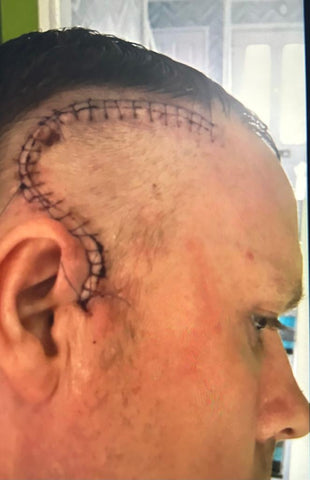
During a check up MRI it was clear the NHS standard of treatment for brain cancer patients wasn’t working. His tumour was still growing.
“We had spoken about marriage before, and Paul’s diagnosis spurred this on.”
He proposed to me after he was first diagnosed, at my dad’s graveside. Paul wanted the best for me.
We planned it all out and had everything booked but then COVID restrictions saw our arrangements cancelled. It was our wish to marry before he died and as Paul became really poorly, we were able to get married with special circumstances on 16 January 2021.
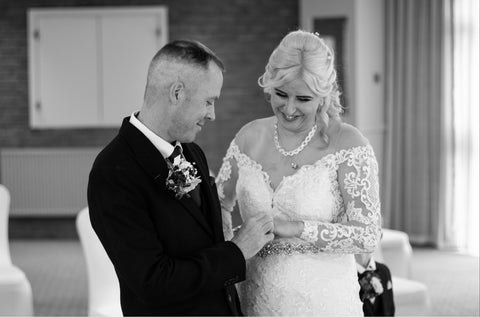
He quickly lost mobility on the left side of his body which meant he dragged his foot. I found myself researching different options to help prolong his life and he was put forward for a trial in London. However, he never made it to the treatment because the cancer was so aggressive and he wasn’t well enough.
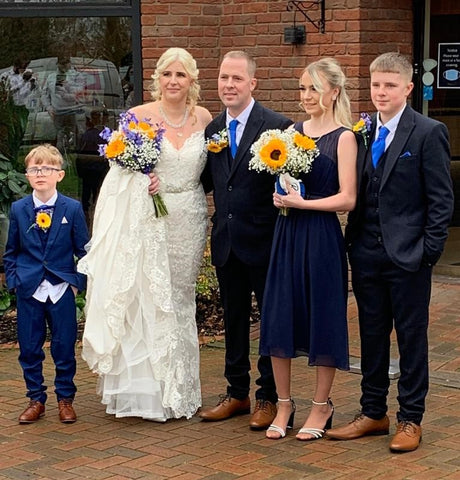
We asked the consultant: ‘there must be something else you can try’. She told us about another type of chemo and warned us that while it could stabilise the cancer, it wouldn’t take it away. However, he was too unwell and all treatment stopped.

That was it. I then cared for him until his death on 5 April 2021.
We were unsuspecting victims of brain cancer and had to navigate our way through a terminal diagnosis where there is a huge lack of investment into research. I never realised until Paul’s diagnosis.
Kelly Jeffries
January 2024
Brain tumours are indiscriminate; they can affect anyone at any age. What’s more, they kill more children and adults under the age of 40 than any other cancer... yet just 1% of the national spend on cancer research has been allocated to this devastating disease since records began in 2002.
Brain Tumour Research is determined to change this.
If you have been touched by Paul’s story, you may like to make a donation via www.braintumourresearch.org/donate or leave a gift in your will via www.braintumourresearch.org/legacy
Together we will find a cure

